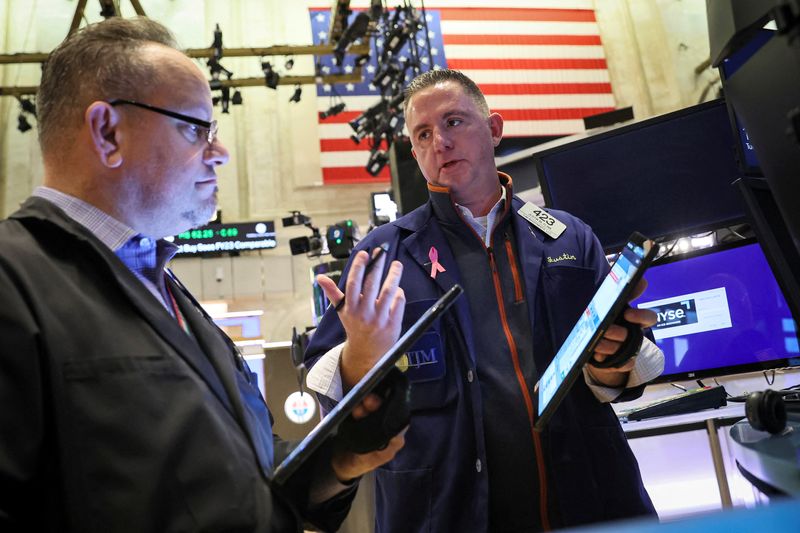Marketing by Mike Dolan-everyone should know
2022.11.23 06:31
[ad_1]

Marketing by Mike Dolan-everyone should know
Budrigannewws.com – On Tuesday, implied equity volatility’s so-called “fear index” on Wall Street fell to its lowest level since August.The index is just 21 points below the 12-month median and nearly half of the earlier-year peaks.
Put against the developing reversal of the U.S. long term Depository yield bend to its most regrettable in 22 years, regularly a harbinger of downturn ahead, the evident financial exchange quiet is confusing.Additionally, Germany’s equivalent yield curve inversion reached its deepest level since 2008.
According to some analysts, there is less demand for downside protection in the options market because portfolios are already underweight equity and the stock market positioning is already so low.
Others believe that the upcoming recession will simply reduce energy and inflationary pressures, speed up the end of central bank tightening, and see a reduction in the costs associated with long-term borrowing that have plagued stock markets for the entire year.
That will be monitored for clues in a readout from the Federal Reserve’s last policy meeting later on Wednesday.
However, in November, flash readings of European business sentiment demonstrated that some of the gloom had subsided, with activity declining at a slower rate than anticipated.As price pressures eased, surveyed German businesses indicated that the severe contraction had eased.
Surveys of U.S. businesses are due later.
Concerns about lower fuel demand from China amid tightening COVID-19 curbs were outweighed by data showing a larger-than-expected drawdown last week, which led to a slight rise in oil prices.
Stocks in China rose after China’s Bank of Communications agreed to provide developer Vanke with a 100-billion-yuan credit line, the latest support for the troubled property industry.
However, the COVID epidemic and its aftermath only got worse.
In the midst of fresh unrest at the largest iPhone factory in the world, Chinese authorities imposed additional restrictions, raising concerns about the economy.At Apple, Foxconn’s flagship company, hundreds of employees participated in protests.Social media footage showed an iPhone plant with broken windows and surveillance cameras.
Everyone who had hoped that the worldwide spike in interest rate rises would come to an end would also be disappointed.
The central bank of New Zealand raised interest rates by a record 75 basis points and warned that the economy might have to go into recession for a whole year to bring inflation down to a manageable level.
The top UK court ruled that Scotland’s government cannot hold a second referendum on independence without approval from Britain’s parliament, crushing nationalists’ hopes for a vote next year. Sterling was stronger as a result.
The stress in the banking sector returned to the news.
As the troubled Swiss bank prepared to ask shareholders to clear a $4 billion equity hike, it announced that it expects to make a pre-tax loss of up to 1.5 billion Swiss francs ($1.58 billion) during the fourth quarter. As a result, Credit Suisse fell 4%.
The universe of sports finance was more brilliant.On Tuesday, Manchester United said it was looking for new investments or a possible sale, 17 years after the American Glazer family bought the English Premier League soccer team. This caused the stock of Manchester United to rise by almost 15%.
The following are important developments that could guide U.S. markets later on Wednesday:
Flash November business surveys in the United States and around the world, weekly jobless claims,
University of Michigan Nov consumer sentiment and inflation expectations, U.S. Oct new home sales and orders for Oct durable goods, and the Federal Open Market Committee’s minutes from its meeting on November 1-2The NYSE: Deere
[ad_2]








